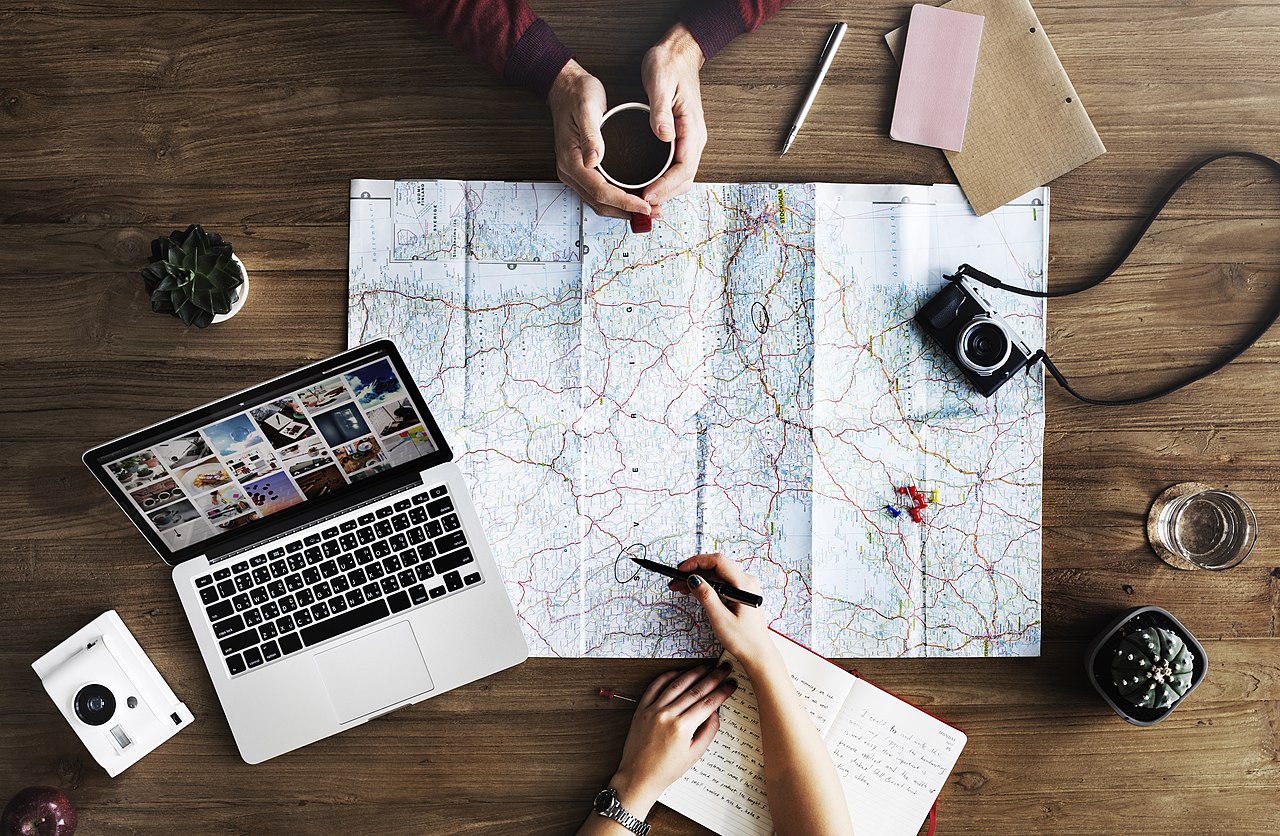
Travel can be daunting, especially to an unfamiliar place. We’ve compiled the best advice for travel planning with disabilities or impairments. And with no surprise, accessible travel is all about how to prepare BEFORE you go!
Become an Expert Travel Planner
It’s time to get organized. Whether you use a Word Doc, Excel, OneNote, or a travel app, make sure you keep your budget, itinerary, and reservations compiled in one place. It’s great if you have access to this on your phone or mobile device, though it’s also wise to print out hard copies in case your electronic device fails. Send a copy to a close friend or relative as an extra safety measure.
Next, research, research, research! There is a plethora of information on the internet about destinations – accessibility is no exception. Many attractions and accommodations have accessibility guides that give detailed notes for visiting, and we’re posting many of them on this site: browse our database now! Before you go, make sure you’ve looked into all the places you will be staying and seeing, as well as the transportation between each place. Search community forums, or start your own thread! You never know what experts are already out there.

Know Your Rights
Before you travel, it’s important to know your rights and the requirements for travel/tour operators. For instance, in the U.S., while service animals must be allowed entry, some zoos provide places for service animals to stay during your visit so they don’t spook the animals in the enclosures. The Disability Rights Education & Defense Fund has posted helpful Frequently Asked Questions about regulations that travel/tour agents must comply with.
Book Early
Some hotels have a limited number of accessible rooms. It’s wise to start your travel planning early to avoid those spots being booked during a destination’s peak season. Similarly, tours may need to reserve interpreters or special guides trained in accessibility. Many museums and other attractions offer equipment loans and interpretation services, and often require for these to be reserved weeks in advance.

Contact Operators and Ask Questions
It’s best to call/email and confirm the details of your visit so there are no surprises. Make sure to get the local contact information (not just the booking agency) and speak with a Manager about your accessibility accommodations. Be specific! If you need a certain clearance under the bed, make sure to confirm the actual dimensions. Write down the Manager’s name so you can verify arrangements when you arrive. While there are plenty of options for pre-arranged tours that claim to accommodate travelers with a disability, you should still call and ask questions. Sage Traveling has compiled a list of questions to ask the tour operator prior to booking.
Organize Your Medical Needs
Check with your doctor for advice about a particular destination. Some locations require extra vaccinations or prescription medications. It might also be helpful to obtain a note from your doctor explaining your condition, needs, medications, etc. Be sure to organize your medications, with labels, and prepare extra time for security checks. Security questioning will go smoother if you have everything organized and your doctor’s note ready to show.
Consider Renting Equipment
Airlines and other transportation companies are notorious for mishandling wheelchairs and other mobility aids. There are horror stories of damage that renders them useless, which can set you back in time and money on your vacation. If you can, consider renting equipment at your destination for worry-free travel. If you must hand over your mobility aid, make sure fragile parts are labeled, and you let the agent know how to properly handle your equipment.

Prepare for the Unexpected & Be Flexible
As with any trip, things can (and will) go wrong. Keep a patient and open mind. However, these hiccups can be much harder to bounce back from with an impairment. One interviewee on Accessible Travel podcast mentioned having a plan A, B, and C for traveling. Write down information for alternate methods of transportation when Uber suddenly isn’t available, or if the taxi cannot accommodate your wheelchair.
When all else fails, ask for help from the kindness of strangers. Many countries are known for their hospitality, so don’t be afraid to ask for assistance from a local.
What are your best tips and tricks for planning travel with a disability? Comment below.
